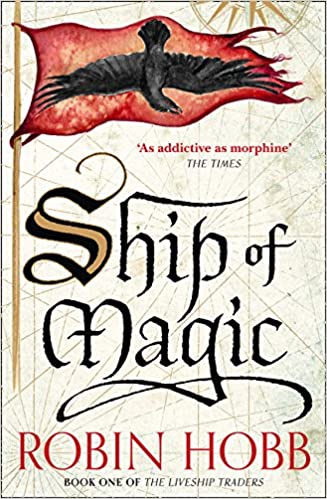The Tiger and the Wolf by Adrian Tchaikovsky
Maniye’s father is the Wolf clan’s chieftain, but she’s an outcast. Her mother was queen of the Tiger and these tribes have been enemies for generations. Maniye also hides a deadly secret. All can shift into their clan’s animal form, but Maniye can take on tiger and wolf shapes. She refuses to disown half her soul so escapes, rescuing a prisoner of the Wolf clan in the process. The killer Broken Axe is set on their trail, to drag them back for retribution. The Wolf chieftan plots to rule the north and controlling his daughter is crucial to his schemes. However, other tribes also prepare for strife. Strangers from the far south appear too, seeking allies in their own conflict. A time of testing and broken laws is near, but what spark will set the world ablaze?
I first tried to read this book when it came out in 2016, but try as I might something about it didn’t quite click and in the end I banished it to my pile of rejected books. But, recently, I found myself looking for a fantasy book, something that would offer escapism from increasingly difficult current events. And The Tiger and the Wolf turned out to be exactly what I was looking for.
Far from being your usual medieval-inspired sword and sorcery fantasy novel, this book takes a variety of inspirations – from Native American culture to African myths – and mashes them together to create something unique. The story centres around different tribes – the Wolves, Tigers, Horses, Serpents, etc – each with their own unique characteristics and beliefs. There are hints of a rich history to this world as well, with ruins of grand bygone eras littering the landscape and stories of past greatness influencing the events of the story. The world-building is fantastic.
The characters are similarly unique. Maniye, a young woman plagued by inner conflict and unable to find a place where she fits in, is our main character. It’s great watching her change and develop throughout the story, finding ways to turn her weaknesses into strengths. There’s a cast of interesting characters surrounding her, from the brutal lone wolf Broken Axe to the mysterious serpent priest Hesprec, each with their own motivations and secret agendas.
The one place where this book falls down is the slow and sometimes repetitive nature of the plot. Tchaikovsky definitely isn’t in a hurry to reveal too much too soon, or to bring things to a rushed resolution, like some fantasy writers. That said, it did sometimes feel like I was reliving the same conversations, the same inner conflicts, the same fight scenes, too many times.
Despite this, The Tiger and the Wolf is perfect escapist reading for the long days of lockdown and I’m definitely going to check out the other books in the trilogy sometime soon.


